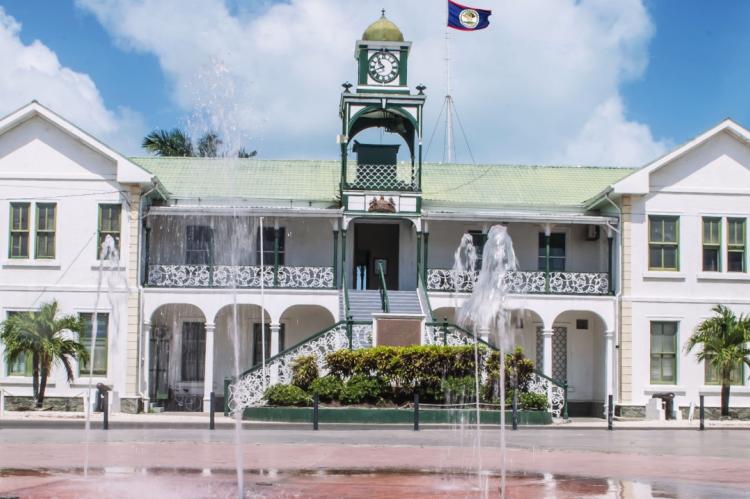Rigged by Design: How Belize’s Electoral Map Was Protected by Power, Until the Court of Appeal Stepped In.
By: Omar Silva I Editor/Publisher
National Perspective Belize I Digital – 2025
Belize City: Friday 25th July 2025
🗞️ Special Report
For nearly four and a half decades, Belize has operated under a distorted democracy—one where the weight of your vote depends not on your citizenship, but on your zip code. Despite clear constitutional mandates requiring fair and proportionate electoral divisions, successive governments have not only failed to redistrict but have actively resisted reform.
Now, the battle for electoral fairness has landed squarely in the crosshairs of public attention, as the Belize Court of Appeal has intervened to undo more than 20 judicial orders that activists claim were weaponized to derail a redistricting case. At the center of the storm is activist Jeremy Enriquez, a grassroots crusader who has taken on the entrenched political order—and the judiciary itself.
📜 A History of Delay and Defiance
Since independence in 1981, Belize’s Constitution has required that electoral divisions be “as nearly equal as may be,” ensuring each Belizean vote carries the same democratic weight. But over time, this principle has been willfully ignored.
By the late 2000s, divisions like Mesopotamia held as few as 2,250 voters while Belmopan swelled to over 10,000. The result: vast discrepancies in voting power, benefiting urban incumbents and denying thousands of citizens equal representation.
In 2019, the Belize Peace Movement (BPM) filed a lawsuit seeking to compel the government to implement long-overdue redistricting. They argued that continued malapportionment violated both the letter and spirit of the Constitution. In August 2020, Justice Michelle Arana ruled in their favor, recognizing that the divisions were unconstitutional—but crucially, she declined to halt the upcoming general election, leaving reform to the discretion of the newly elected administration.
🎭 PUP’s Promise—and Its Political U-Turn
Upon taking office in November 2020, the People’s United Party (PUP), under Prime Minister John Briceño, promised to correct the imbalance. That promise evaporated quickly. Despite a report from the Elections and Boundaries Commission and the release of 2022 census data, no redistricting action was taken.
Instead, when the Peace Movement renewed its efforts in 2024 to stop yet another election based on unconstitutional divisions, the government responded with brute legal force—deploying Marine Parade Chamber’s Hector Guerra, a high-profile PUP Senator, to suffocate the case with procedural strikes.
And it worked. In July 2025, Supreme Court Justice Tawanda Hondora dismissed the case as an “abuse of process,” a ruling that many constitutional scholars and civil society groups viewed as a thinly veiled political maneuver.
🚨 The Enriquez Revelation: Judicial Bias and a Gag Order
What followed has stunned even seasoned observers of Belize’s judicial system.
Jeremy Enriquez, the lead claimant, revealed that during a break in the court’s proceedings, a live microphone caught Justice Hondora admitting he had already made up his mind to dismiss the case. This prompted Enriquez’s attorney, Anand Ramlogan (SC) of Trinidad, to file a formal complaint with the Judicial and Legal Services Commission (JLSC) alleging judicial bias and misconduct.
Rather than initiating an investigation, the judiciary—under Justice Hondora’s hand—retaliated with a series of more than 20 orders against Enriquez and Ramlogan, including a gag order forbidding them from speaking about the case.
The orders were issued without trial or hearing. Enriquez publicly described the experience as “an attempt to intimidate” and suppress public scrutiny of an already compromised judicial process.
⚖️ Court of Appeal: A Stunning Reversal
In a dramatic twist, the Belize Court of Appeal recently lifted the gag order and struck down all 20+ of Justice Hondora’s decisions, paving the way for the redistricting case to proceed on a clean slate.
The appellate court found the orders egregious enough to vacate them entirely—an extraordinary move that casts a long shadow over Justice Hondora’s impartiality and the integrity of the High Court process. It also raises grave constitutional questions about the use of judicial authority to suppress fundamental rights and entrench electoral inequality.
The Judicial and Legal Services Commission, to date, has refused to act on the misconduct complaint, offering only silence and bureaucratic acknowledgment.
🧨 The Conflict of Interest Nobody Wants to Acknowledge
Enriquez has also called out a glaring conflict of interest: Minister Henry Charles Usher, the PUP’s key voice on constitutional matters, continues to speak about redistricting while representing one of the smallest and most overrepresented divisions—Fort George.
“The system is broken,” Enriquez told reporters. “Both major political parties have violated the Constitution repeatedly, and the silence of the Bar Association, civil society, and institutions only emboldens the abuse.”
🔥 A Constitutional Crisis, Not Just a Court Case
This is no longer just a case of bureaucratic delay or failed political will. It is a full-blown constitutional crisis in which:
- A government has refused to redistrict for political advantage.
- A judge allegedly biased the outcome and used gag orders to suppress dissent.
- The nation’s courts became a battleground between citizens seeking justice and a system built to protect incumbency.
🚨 What’s Next?
The redistricting case may now return to the High Court under a new judge, and the public eye will remain fixed on whether a fair trial is finally allowed to proceed.
But the real battle is not in the courtrooms. It is in the court of public opinion—and in the conscience of the Belizean people.
Because democracy delayed is democracy denied. And in Belize, democracy has not merely been delayed—it has been deliberately locked away by the very people entrusted to protect it.
- Log in to post comments

